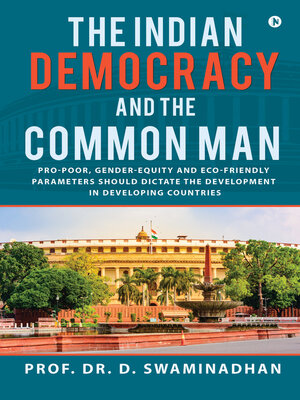
Sign up to save your library
With an OverDrive account, you can save your favorite libraries for at-a-glance information about availability. Find out more about OverDrive accounts.
Find this title in Libby, the library reading app by OverDrive.



Search for a digital library with this title
Title found at these libraries:
| Library Name | Distance |
|---|---|
| Loading... |
Democracy is defined as the Government of the people, by the people and for the people. It is considered the most acceptable form of Government in which every individual participates consciously and in which the people remain the sovereign power determining their destiny. India is a multicultural, multilingual, multi-religious and multi communal country. But Unity in Diversity is its strength. It is the largest Democracy in the World and is one of the oldest civilizations, with a rich cultural heritage. The Indian Constitution, which stands for national goals like Socialism and National Integration, was framed by the representatives of the Indian people over a long period of debates and discussions. The Constitution declares India to be a Sovereign, Secular, Socialist, and Democratic Republic. The Constitution of India guarantees Fundamental Rights to all its citizens. They have the Right to Equality, Right to Freedom, Right against Exploitation, Right to Freedom of Religion, Culture and Educational Rights and Right to Constitutional Remedies.
Various other constitutional safeguards are provided in the Constitution for the weaker sections' welfare and development like Scheduled Castes, Scheduled Tribes and Other Backward Classes.
While tracing the Indian Freedom Movement, Indian Democracy, Indian Constitution, Indian Parliament and Government, the book focuses on the status of the Common man. What benefits he derived from the three wings of governance- Legislative, Executive and Judiciary- and what he is deprived of has been examined in the book and suggested appropriate measures wherever needed for his betterment.







